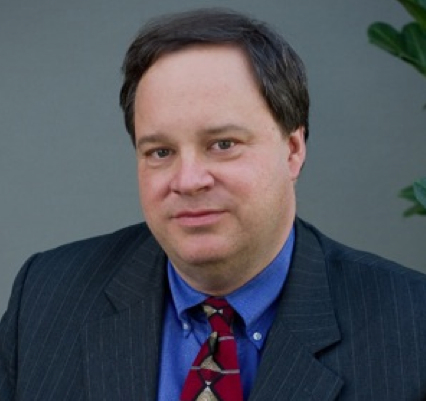James Bradford DeLong, comunemente conosciuto come Brad DeLong , è un economista statunitense docente presso l'università della California di Berkeley.
Professore di Economia e cattedratico di Economia Politica presso la University of California, Berkeley, ha lavorato come Deputy Assistant Secretary per il United States Department of the Treasury durante la presidenza di Bill Clinton sotto la direzione di Lawrence Summers. Egli è anche Research Associate del National Bureau of Economic Research, e visiting scholar presso la Federal Reserve Bank of San Francisco.Assieme a Joseph Stiglitz e Aaron Edlin, DeLong è coeditore di The Economists' Voice, ed è stato coeditore di Journal of Economic Perspectives. È anche l'autore del libro, Macroeconomics, la cui seconda edizione la scrisse assieme a Martha Olney. Scrive un editoriale mensile per Project Syndicate.
In qualità di ufficiale al Dipartimento del Tesoro per l'amministrazione di Clinton, lavorò sul budget del 1993, sull'Uruguay Round del General Agreement on Tariffs and Trade, su North American Free Trade Agreement, e sulla riforma assistenziale promossa da Clinton ma mai attuata health care reform effort.
DeLong è un prolifico blogger. Il suo blog principale è Grasping Reality with Both Invisible Hands, che parla di politica, tecnica e materie economiche e di critica a come queste questioni vengono trattate nei media.
DeLong può essere considerato un liberale e secondo la moderna politica americana un free trade neo-liberal. Ha citato Adam Smith, John Maynard Keynes, Lawrence Summers, Andrei Shleifer, e Milton Friedman come gli economisti che hanno avuto la maggiore influenza sulla sua formazione. Infatti, le sue dodici più importanti pubblicazioni sono state redatte assieme a Summers, e alcune delle migliori pubblicazioni di Summers sono redatte assieme a DeLong.DeLong vive a Lafayette, California, ed è sposato con Ann Marie Marciarille, AARP Health and Aging Policy Research Fellow presso la Pacific McGeorge Capital Center for Government Law and Policy. Ha ricevuto il A.B. e Ph.D. presso la Harvard University, nel 1987. Prima di andare a Berkeley, ha insegnato ad Harvard, alla Boston University, e al MIT.
✵
24. Giugno 1960
